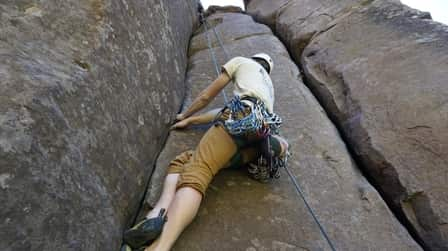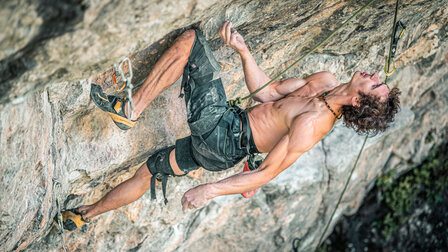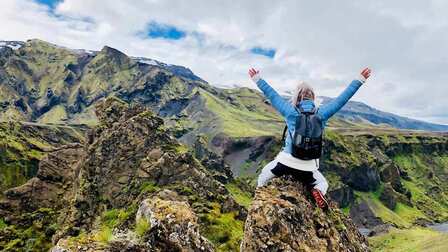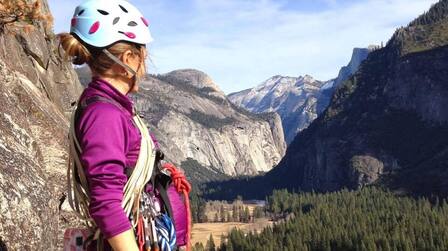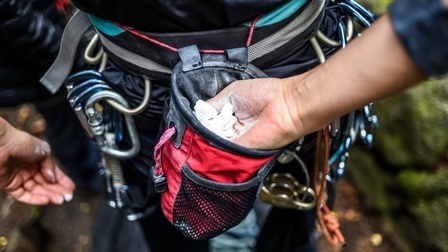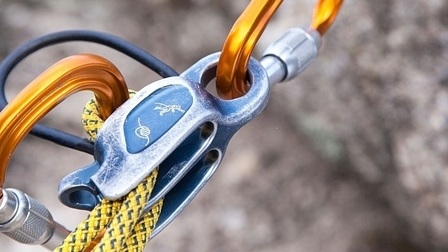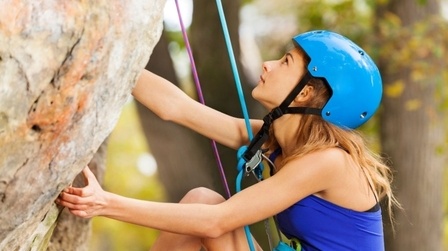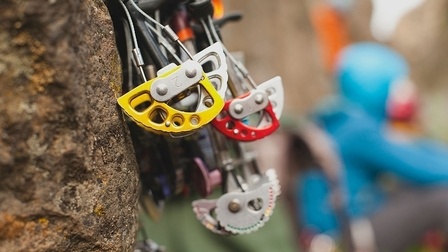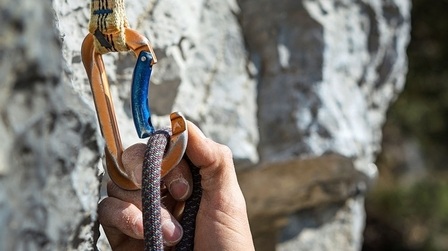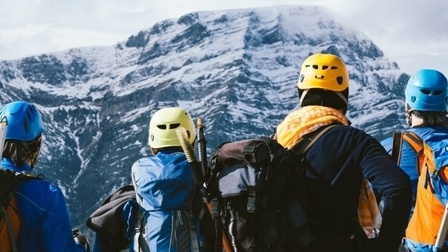Everyone knows that mountain climbing is one of the best sports. You want to become stronger. Mountain climbing is a sport that is physically challenging, increasing the ability to solve problems. Give it a try, you will definitely be fascinated by them all.
But how smart is climbing. Learn and climb in ways that save energy and help recover quickly, that's a smart thing. These two strategies will both improve your climbing performance, but too many climbers become concerned about getting stronger, while not realizing the value of optimizing use of strength and accelerating their recovery.
Most climbers lose strength near the finish line. You should learn more efficient ways to climb. If you are going to climb the mountain, it is imperative that you save as much energy as possible to achieve your goals and good results. The process of conserving energy is extremely important, if you take too long to reach your destination, you will definitely run out of energy before reaching the destination. Here, we give you some energy-saving tips for mountain climbing routes.
1. The train method - The healthier you are, the less tired you are
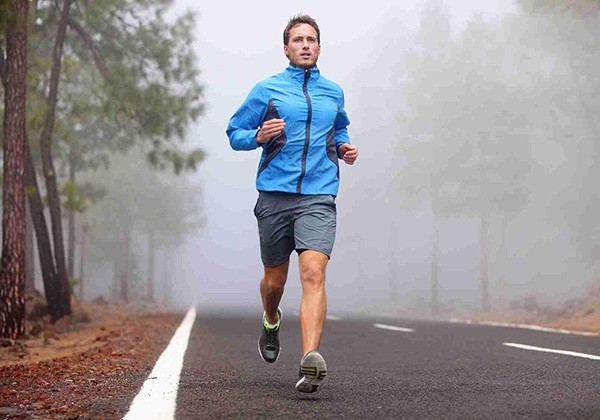
Science proves that fitness will play a huge role in helping you save energy. Being physically healthy from the start, that means you naturally have more energy. Plus, you'll essentially be able to maintain the kind of motion needed to save energy.
So it's best to do your research and get trained before you go on your hike. The more you work hard to exercise, the less tired you will be and save energy during the climbing process.
2. Prepare properly

To climb the mountain, you need to prepare all appropriate clothes, tools, shoes, bags and other equipment.
Climbing requires you to bring adequate gear and gear, which will help you achieve your climbing goals. Simply put, you need to choose the right clothing, shoes, bags, emergency supplies, and more to be able to respond appropriately in any event.
You need to consider the weight and size, along with the functionality of the items you carry. Bring only what is essential for your journey. Every gram counts.
3. Do not eat too much

There are many people who think that eating more will give you more energy, but this is not necessarily true. In fact, eating too much can reduce your energy, because then the resources in the body will be diverted to digestion.
Depending on how much you've eaten, you may even experience indigestion, which can be fatal while climbing.
To be able to save energy while climbing, you can eat some cereal mix or other snacks while climbing. However, the problem can happen when it's time to eat properly and you end up eating more than you expected. You should only eat really enough to fuel you until the next meal.
4. Take regular breaks - Stop when necessary

Many climbers may be tempted to keep walking even when exhausted for any number of reasons, like being too eager, overconfident or simply careless. However, unlike you might expect, this is a surefire way to injure yourself. Rest is a very important part of climbing.
This is why in popular destinations there are always stops or rest stops. In more remote areas, you may have to decide when you will stop to rest, but you have to do it no matter what. This will be doubly difficult when you have unsatisfactory companions. You may even have to support them if you go over their limit.
5. Step carefully - Consider your route and terrain carefully

You must always remember that the more challenging the terrain, the more energy you expend. This is why it's best to follow designated paths and trails so you only need to expend as much energy as needed. Choose less steep paths when you can and try not to use upper body strength when possible. It's a good way to save energy while climbing.
6. Economical move - Avoid wasted movements, conversations and actions
Just like choosing the terrain, your choice of movement also needs to be carefully considered. Do not talk or laugh excessively during the climb. Don't leave to explore just because you find something interesting. And you certainly must not run, jump or climb when there are better ways to reach your destination, to achieve your goal.
Notice how even the way you stand, the way you walk and the way you get things can be minimized to save energy as much as possible. However, do not try to go overboard or lose yourself in counting your steps. That would backfire.
7. Drink water regularly, don't drink energy drinks

Electrolytes play an important role in keeping your body functioning properly. Usually, you will need to automatically drink when you feel thirsty.
Drinking water is indispensable for everyone's body, especially when participating in strenuous activities, such as mountain climbing. Drink water regularly during the climb and do not allow yourself to become dehydrated.
You also must not drink carbonated drinks, coffee or other sugary drinks. You must only rely on water as anything else will deplete the electrolytes in your body.
8. Note no detours - Stick to the road and do not deviate
One thing to keep in mind to save energy when climbing is that you must avoid detours at all costs. Rough terrain will always require more energy use than smooth terrain. Even if you think you can handle it, you still have to choose the easiest, least challenging paths to achieving your goals.
The destination that you have chosen prior to departure should be your only concern when you are climbing. Side trips, roundabouts will only drain your energy, and if you take too many, you could end up wasting too much time. This will then lead to you becoming too tired and taking too long to reach your destination.
9. Learn, learn about footwork and body position

Most people tend to put all their strength on their feet (especially on near-vertical to steep ground), rather than while moving. As a very stressful climber, you should drop your heels down a bit, instead of always standing on tiptoes (to avoid calf and shin fatigue). More generally, you should learn to relax overstretched muscles, and certainly don't overdo it, avoid overdoing it. Keep your weight on your hips, hips close to the wall, stand on your feet and push with your feet more than pulling your arms.
10. Looking for a companion
You should find positive and motivated people (preferably better climbers than you currently are) to climb with.
This tip will definitely help you speed up the "learn to climb" process. Instead of climbing alone, climbing around you with positive and motivated people will help you stay optimistic and motivated to learn your way. Climbing can be difficult and strenuous. The learning curve is quite steep for the first few months but after that, it stabilizes. Staying motivated throughout that process can be difficult for some people. Climbing mountains and training with active people will help you a lot. Your fellow climbers will cheer you on when you doubt your abilities. They can really cheer you up during a route that you would otherwise have to give up. Finally, you will find out climbing will be more fun with more people.
Conclusion
Body energy can be quite fickle things. In the civilized world, it is an obstacle to the existence of people who do not like to gain weight. However, for climbers, energy (calories) is quite necessary, especially if they climb in places that are too hot or too cold.
As a de facto human energy source, calories basically represent the ability to continue climbing and the ability to overcome obstacles while climbing.
Hope, with the tips gearinstant given above, will help you to save energy while climbing.


